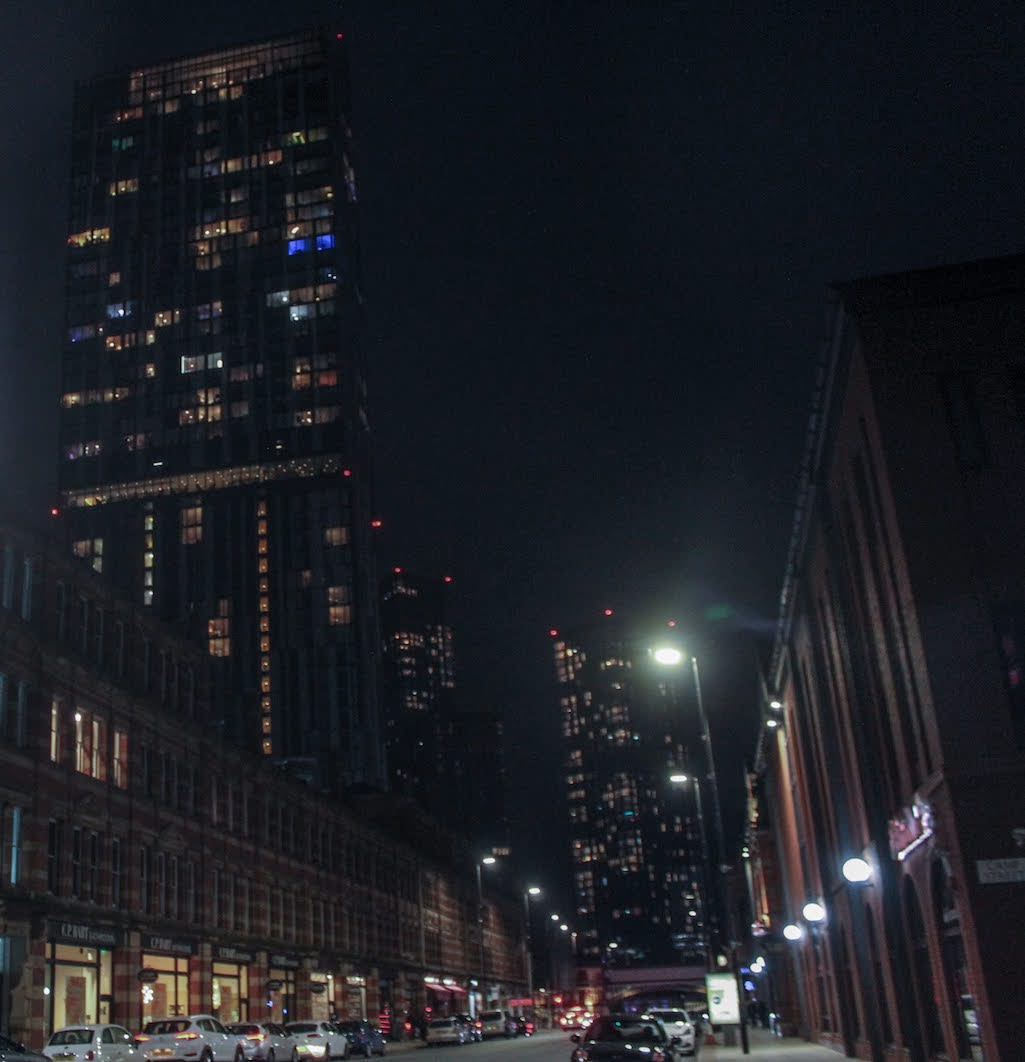A night out in Manchester
Follow a night out in the city and explore the biggest issues facing our nighttime economy.
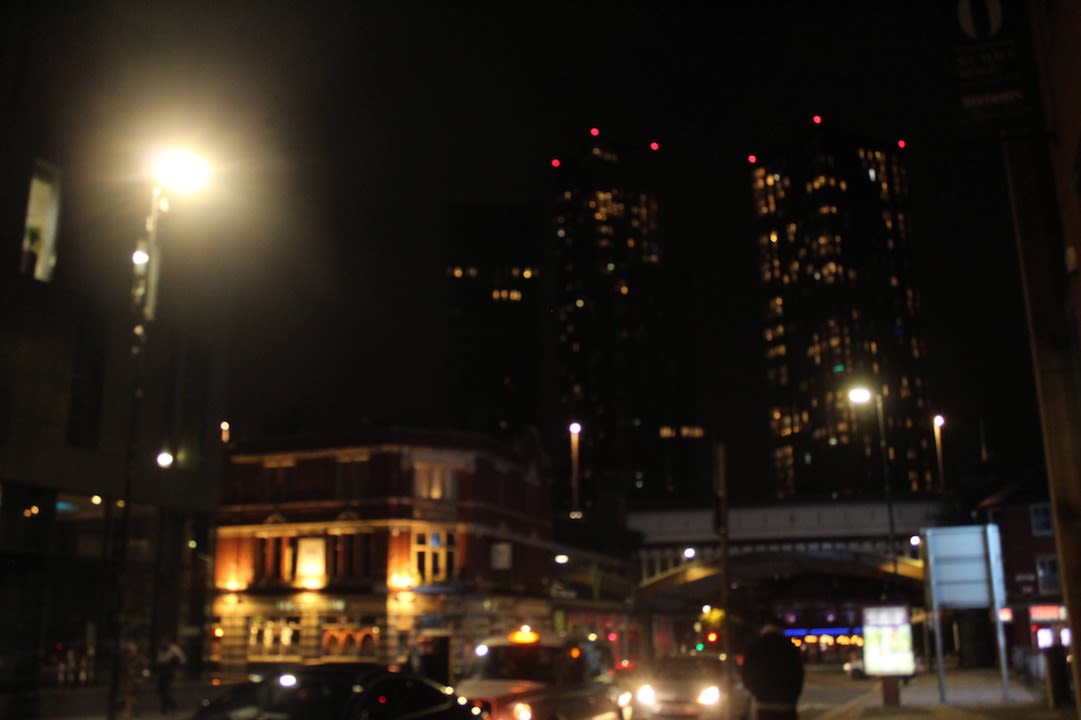
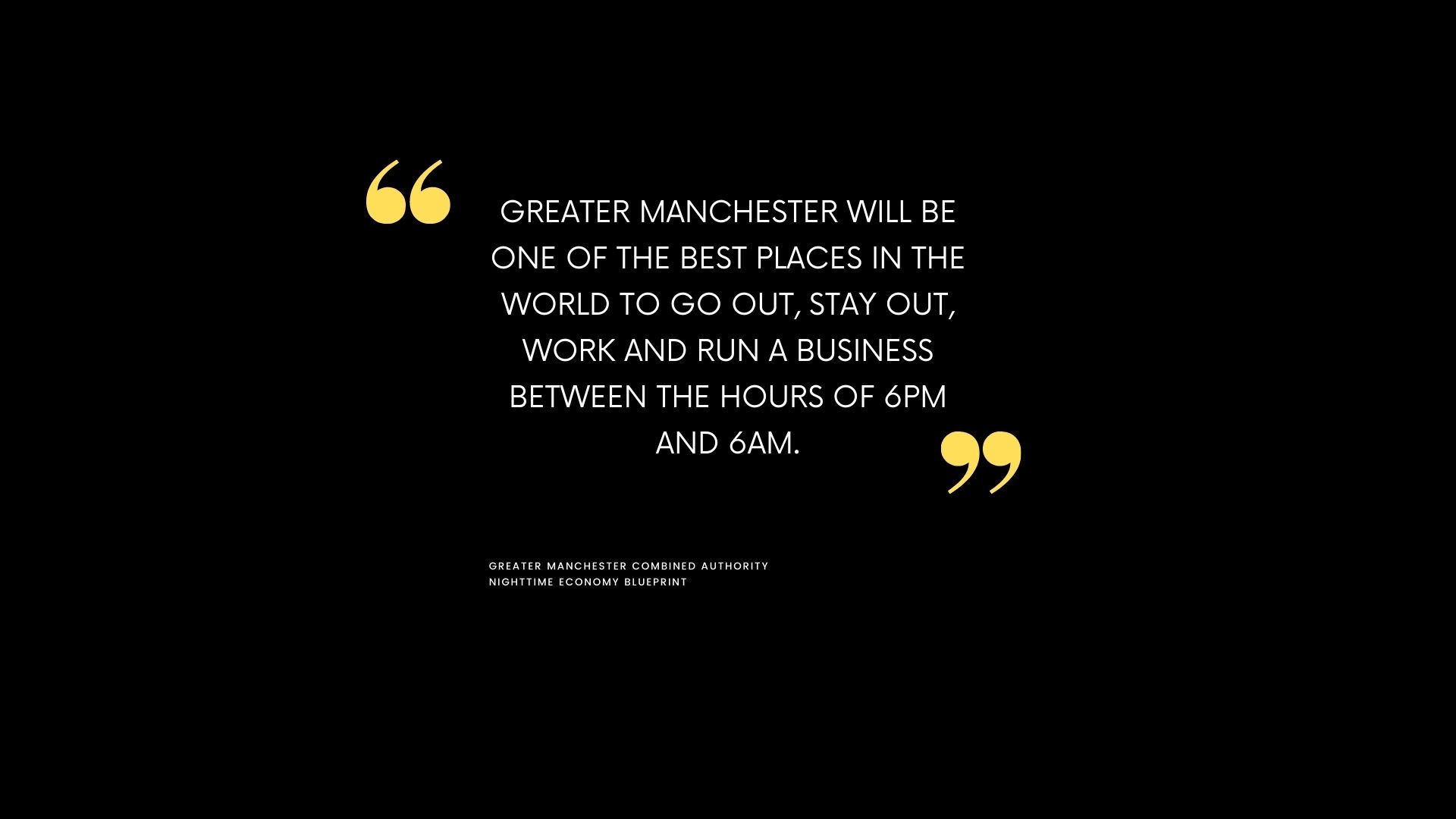
"We will celebrate the unique offer of each of our ten districts, recognising the importance of the night time economy to the vibrancy of our towns, cities and high streets. Our restaurants, bars, clubs and cultural organisations will be high quality, distinctive, safe, enjoyable and accessible. "
This is the vision for Greater Manchester’s nightlife, as laid out by its leaders in the nighttime economy blueprint.
The city is famous for its nightclubs, music, and culture. But in a year when thousands of women took to the streets to boycott bars due to a recent rise in spikings, and sexual assault is still prevalent, it’s important to stop and ask - is it working?
Let’s go on a night out, and explore a few of the biggest issues that face our nighttime economy - spiking, drug use, sexual harassment, and safe transport.
Let’s get started…
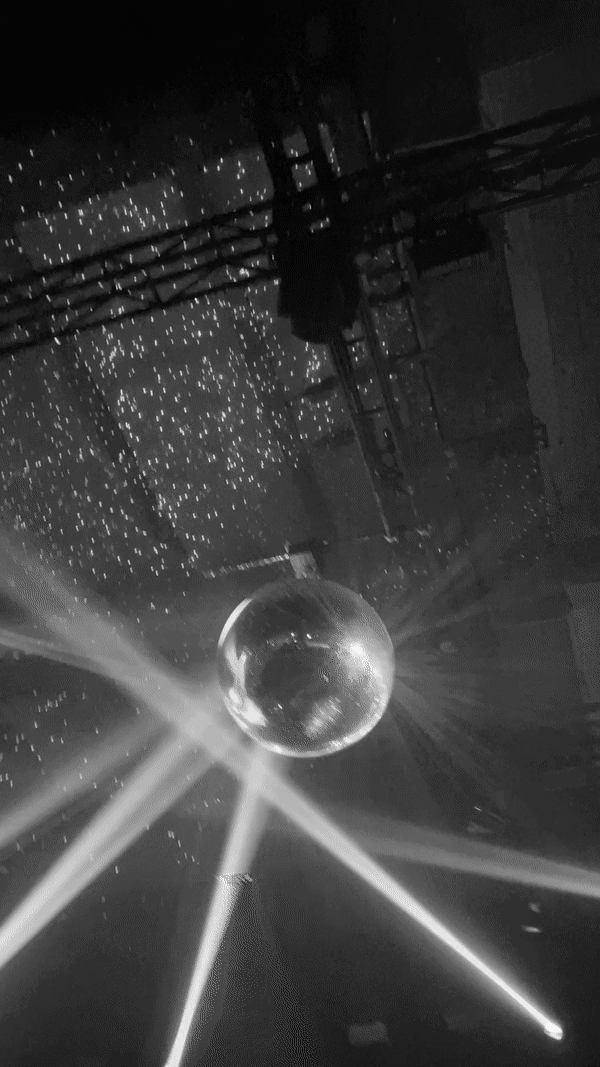
1. The bar
You start your night at a bar with friends...
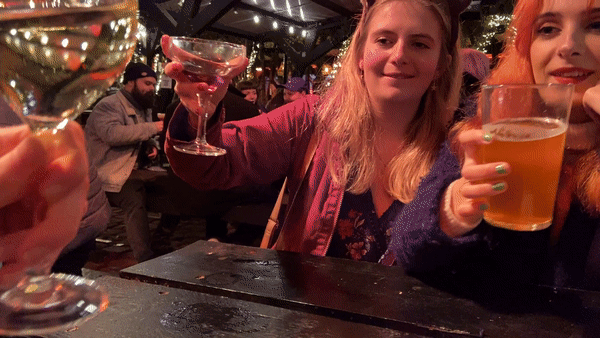
For many people, a night out will start with alcohol.
If you’re drinking anywhere outside your home or with people you don’t know, drink spiking can pose a risk.
Over recent years, bars and clubs have made efforts to help people, especially women, feel safe in venues.
These measures include posters on the back of toilet doors telling women what to look out for and providing strips to allow people to test their drinks for spiking.
Perhaps the most prominent of these is the ‘Ask Angela’ campaign, which encourages women to go to the bar and ‘ask for Angela’ if they are feeling unsafe in a venue. But a Metro investigation earlier this year found that many of the bars and clubs participating in the scheme weren’t training staff on it, rendering it effectively useless.
And the last six months have seen a rise in public concern over ‘injection’ spiking, where victims are allegedly drugged by being surreptitiously injected in busy nightclubs.
It’s a terrifying prospect that has sparked panic across the UK and beyond. The response to a Freedom of Information request sent to Greater Manchester Police asking how many reports of injection spiking they had received over the last five years said a manual trawl of 3,129 possible results would exceed the time limits set on such requests.
But there have been zero confirmed cases of injection spiking so far in the UK. “Experts are somewhat divided in terms of the possibility of it,” explained Adam Waugh, senior healthcare team member at The Loop, a harm reduction charity.
“Most people think that someone could administer a drug intramuscularly, it is possible, but whether people can not realise is being discussed.”
He said there is currently a lack of evidence, which makes it hard for experts to analyse these incidents properly.
Despite the questions that linger over the likelihood of injection spiking, what is clear is that women do not feel safe - and often are not safe - when out at night.
And they’re starting to take matters into their own hands. Countless websites where members of the public can report spiking incidents and warn others have been set up, aiming to create a comprehensive database of venues where potential spikings have occurred.
But perhaps what these sites mostly do is highlight the consistency and indiscriminateness of these incidents.
Of the nearly 100 incidents reported on this site, one in ten of them took place in Greater Manchester.
Concerns have been raised about the effectiveness of reporting spiking in this way. Waugh said it was good to see venues being held accountable, but that incidents can be random even at places that take vigilant steps.
“It is important that venues are held to account for how they respond to incidents like these. If an incident happens in a venue and the venue does everything they can to report it to the police and support the victim it would be a bit unfair for them to get criticised,” Waugh said.
Thousands of people took to streets across the UK earlier this year to protest the rise in spikings - and perhaps, the government is starting to listen.
In December 2021, the Home Affairs Committee launched an inquiry into spiking in the form of a public survey, giving victims a chance to report their experience and explain what happened to them.
“At present, the prevalence of spiking is poorly understood,” the website reads. “That is why as part of this inquiry we have launched a survey to hear directly from victims about what happened to them and how they were supported. We also want to hear from those who have witnessed spiking incidents and have experience in supporting victims so we can understand their perspectives.”
On the same website, Acting Chair of the Home Affairs Committee Tim Loughton MP said: “We want to understand what more can be done to stamp this out, but also how victims can be better supported in reporting these incidents and dealing with the long-term consequences on them.
“We also want to see how police can work with partners in the entertainment sector and other areas to identify more effectively when such incidents take place.”
If anything, the inquiry once again highlights how little is known about spiking in all its forms currently.
At the moment, spiking poses a huge problem to nightlife safety. Where we go from here is unclear, but change is undoubtedly necessary.
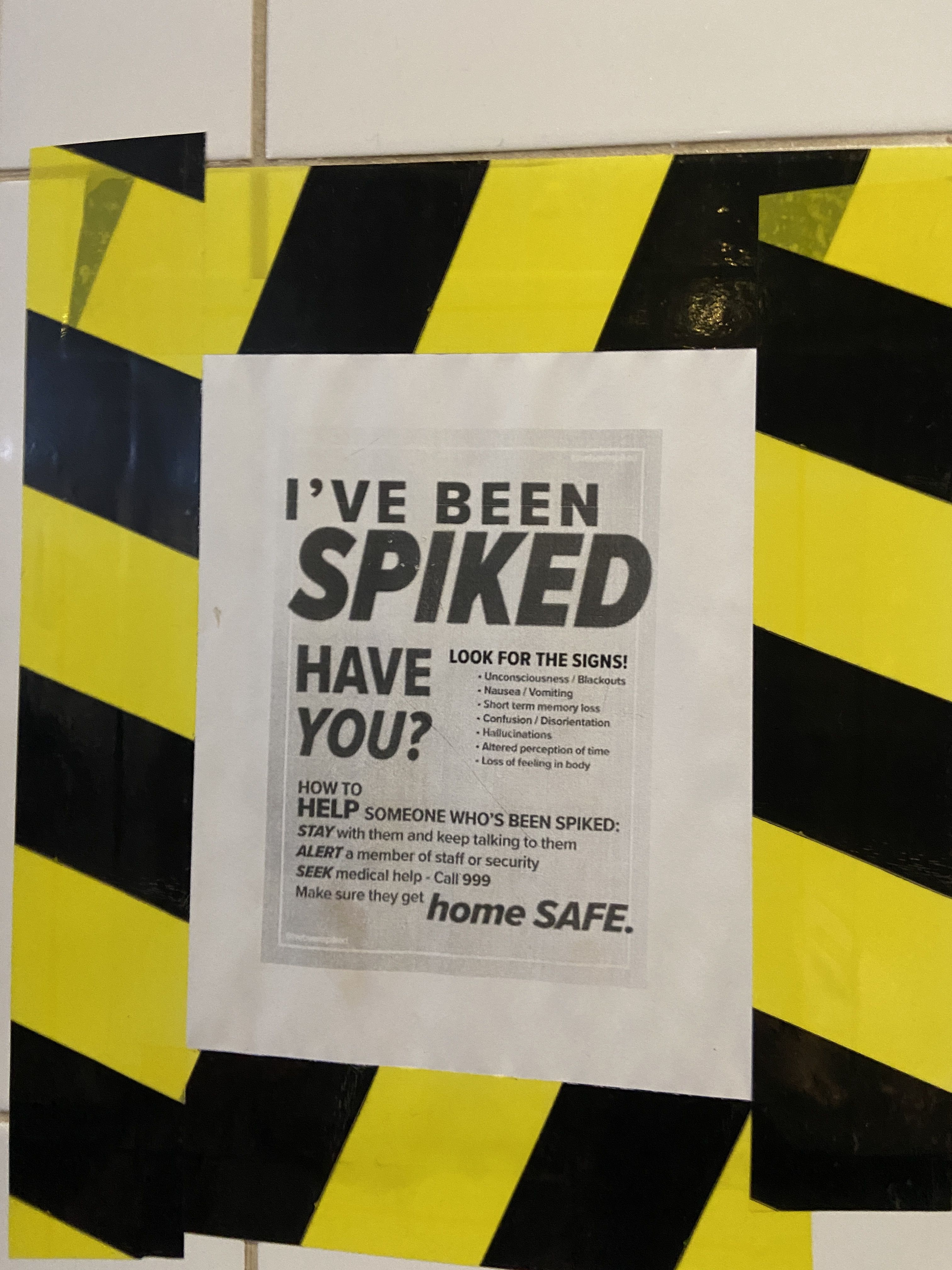
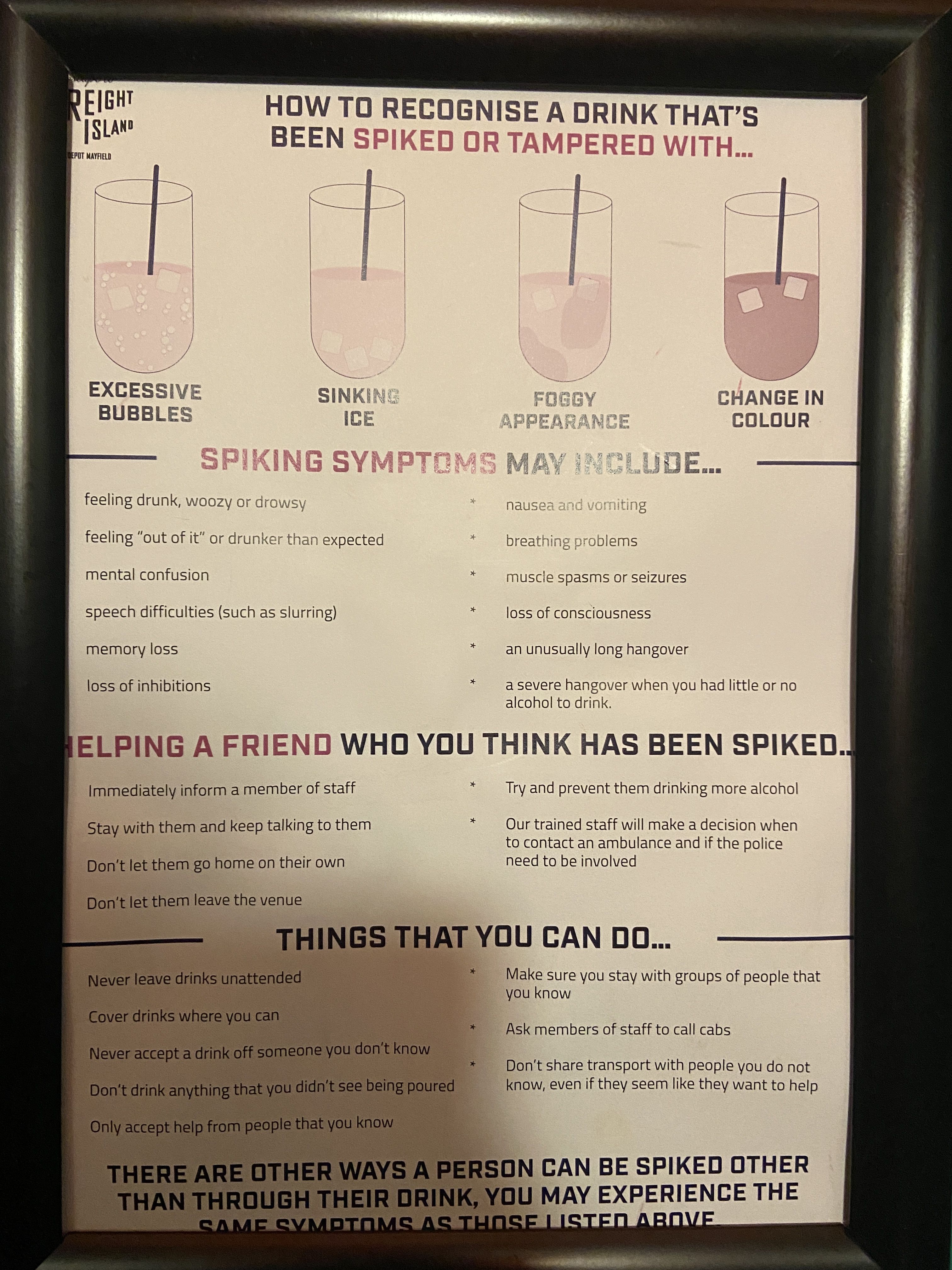
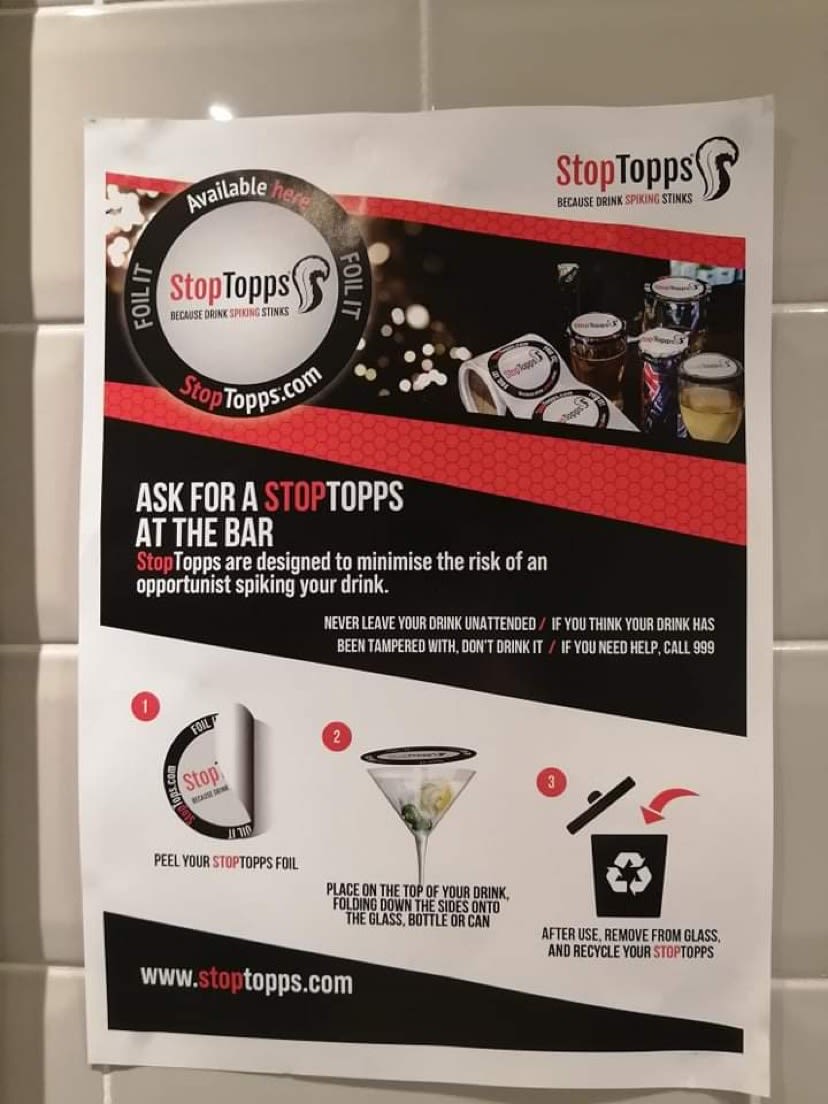
2. The club
You leave the bar tipsy and stumble out into the night. Onto the club…

For some revellers in Manchester, alcohol is just the start of the night. Recreational drugs such as MDMA, cocaine and ketamine are popular among young people in the city looking to experience new things and enjoy themselves.
ONS statistics show that for the year ending March 2020, 4.6% of adults aged 16 to 59 years (around 1.6 million) had used any drug in the last month. For those aged 16 to 24 years, the proportion was more than double, 9.9% (around 622,000).
If you want to get drugs in Manchester, it isn’t hard to find the right person. Numbers are given out on lighters and business cards frequently in the students area of the city, Fallowfield, or if you don’t know where to look, a friend or a friend of a friend almost certainly will.
But unsurpisingly, even once you get your hands on these illegal substances, using them carries risks. Drugs can be mixed with less risky lookalike substances such as caffeine, but are also often replaced or mixed with eutylone, clephedrone, and other cathinones. These can sometimes have similar effects to the drug the user intended to take, but often carry more medical risks. Even the fact that users do not know exactly what they have taken carries a risk if they were to seek medical treatment.
It’s something those who work at Manchester’s MANchester DRug Analysis and Knowledge Exchange (MANDRAKE) lab are only too familiar with. From September to January, when the city’s popular Warehouse Project events run, MANDRAKE tests any drugs collected at the doors from revellers in their lab based at Manchester Metropolitan University. Its findings inform residents of any particularly potent or dangerous pills in circulation, as well as analysing the trends in drug strength and mixing ingredients.
MANDRAKE is the first publicly-funded permanent city-centre based testing and harm reduction facility in the country. Its work highlights the safety issues that are not unique to drug use in Manchester, but are certainly prevalent here given the saturation of world-class nightlife venues and events.
Organisations like MANDRAKE and The Loop work hard to inform drug users of any potentially suspicious or risky substances in circulation. The approach is informative rather than punitive - both focus on harm reduction and awareness.
And the approach has informed the recently published ‘GMTrends’ report, looking at trends in substance use in the city region stemming directly from research carried out by MANDRAKE.
The report found that while most recreational drug use had fallen during the recent lockdowns, some instances of increased drinking in the home had led to increased powdered cocaine use.
And as clubs reopened last summer, the inconsistency in potency of MDMA in the region became clearer. As the GMTrends report reads:
“More recent tests conducted by MANDRAKE and other organisations since the reopening of clubs and the restart of festivals in August/September 2021 have found a mixture of high potency MDMA pills, and other pills mis-sold as MDMA. MANDRAKE analysis at Manchester Pride festival along with tests conducted at ‘Creamfields’ and by The Loop at ‘Lost Village’ and ‘Parklife’ in Manchester in September 2021 indicate that a sea change has taken place in the MDMA market (We Are The Loop, 2021). Half of the samples of MDMA in pill, powder and crystal form were found to contain caffeine or one of a number of cathinones such as 4-CMC (4-Chloromethcathione), 3-MMC (3-Methylmethcathinone) and Eutylone.”
Perhaps the most striking example of this is a pill tested by MANDRAKE at Manchester’s Warehouse Project in November, found to be possibly the strongest MDMA pill to ever have been tested.
Waugh said the pill comes as “part of a wider disruption to the MDMA market”, with around 50% of the MDMA pills tested in the summer by The Loop not containing any MDMA at all.
“This particular pill was so high strength that most experts think that it was produced by mistake," Waugh said.
“As always, drugs are illegal so there’s no product control, so they’re not regulated so that’s why you should always be cautious.
“If you are going to take drugs, this pill in particular shows the importance of taking a quarter of a pill, being cautious about mixing drugs, including alcohol, being with friends, and sticking with friends."
The GMTrends report shows that there were 3,315 hospital admissions due to drug poisoning and misuse in the North West during the 2019/20 period - that’s around one in five of England’s total.
The figures are a sobering reminder of the risks that even occasional recreational drug use can carry, and the inconsistencies of the drug market in the North West and beyond.
If you are planning on taking drugs, you can find judgement-free advice and information on Talk to Frank, and advice on recent drug trends and analytics from The Loop and MANDRAKE on Twitter.
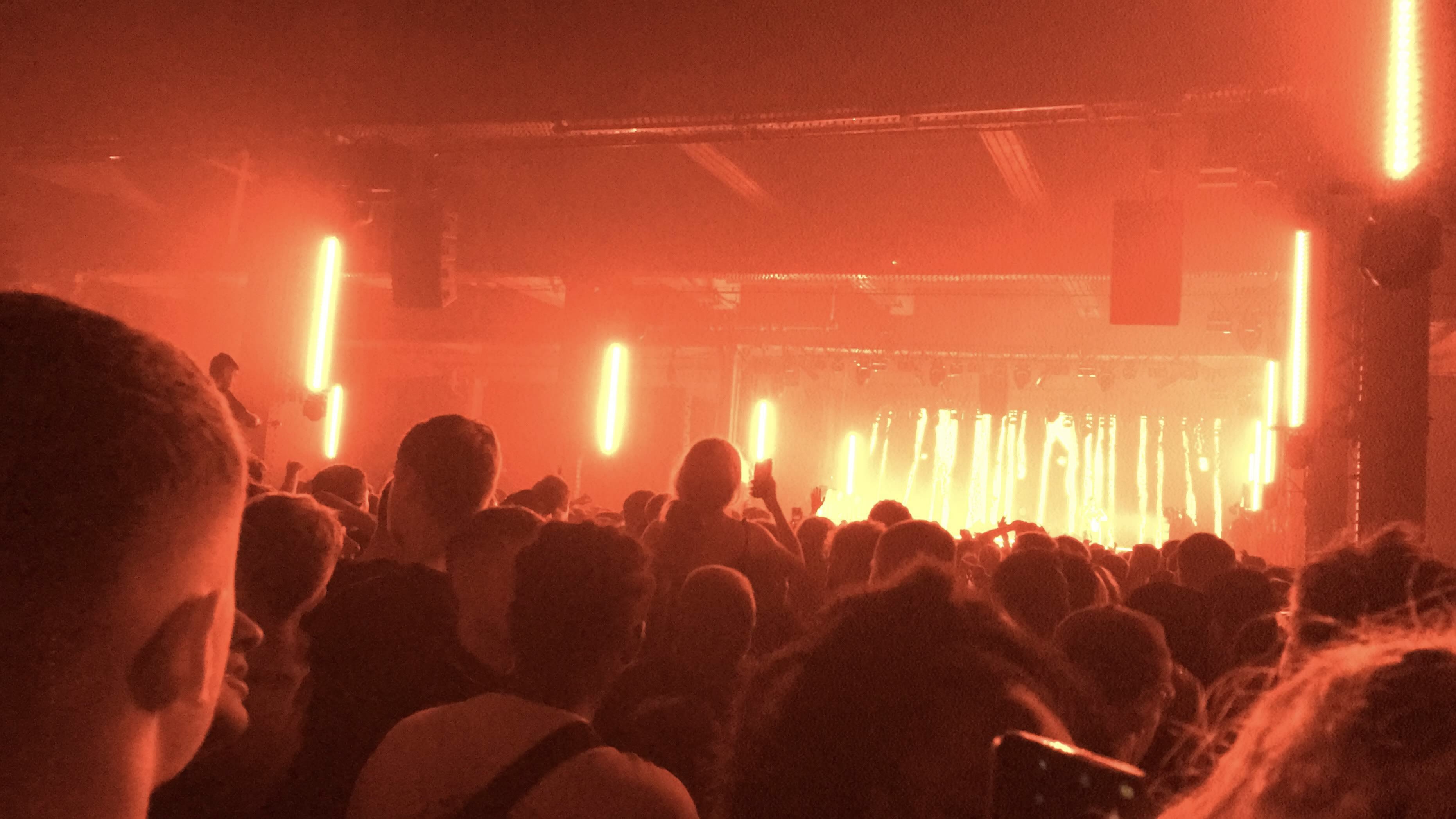
Seven in ten (71%) of women of all ages in the UK have experienced some form of sexual harassment in a public space.
That’s according to the UN Women’s Sexual Harassment report, published in March 2021.
With figures like that, it’s an issue that is impossible to ignore - and one that is undoubtedly prevalent in the nighttime economy. Anecdotally, it seems that every woman has a story to tell - and in an age where technology and social networking allows for these stories to be told widely, they aren’t difficult to find.
But how do we tackle it?
One group has taken things into their own hands. Urban Angels Manchester describes itself as “a community which focuses on the safety of women and non-binary people in our area”. It works across Facebook and Instagram to allow women and non-binary people to share alerts of anything dangerous, suspicious or uncomfortable they witness or experience. Members can seek solidarity and support, and share ideas and generate initiatives to help make Manchester safer.
The group tracks reports made across various online forums, including the Facebook group ‘Manchester Students Group’ which has over 61,000 members, and puts them into a publicly accessible spreadsheet. Each venue in Manchester is listed alphabetically, with any reports made about that venue listed underneath.
Cristina Catania Flores, founder of Urban Angels Manchester
Cristina Catania Flores, founder of Urban Angels Manchester
Cristina Catania Flores, founder of Urban Angels Manchester, said it is important that people have a reference so they can make informed decisions about their safety.
She hopes that the more incidents people report, the more venues pay attention and increase their own safety measures.
However, some argue the fact that those most vulnerable to harassment are having to take their own action is the sign of a system failing those who need it most. GMP data shows that of the 3,796 rapes recorded in Greater Manchester in 2019, over 93% did not lead to a successful conviction (or, to use GMP's language, were not 'solved)'.
And the figures come from a police force who themselves faced the second-highest number of sexual misconduct allegations in the country last year.
Following the brutal abduction, rape and murder of Sarah Everard by serving Metropolitan Police officer Wayne Couzens in March 2021, a recent survey shows that almost half of women have less trust in the police. Additionally, 76% of women (and 71% of all adults polled) think the culture of policing has to change in order to better respond to violence against women and girls.
It’s a dire position for the officers who are tasked with protecting society to be in, with many questioning whether they are even equipped to deal with issues surrounding sexual harassment.
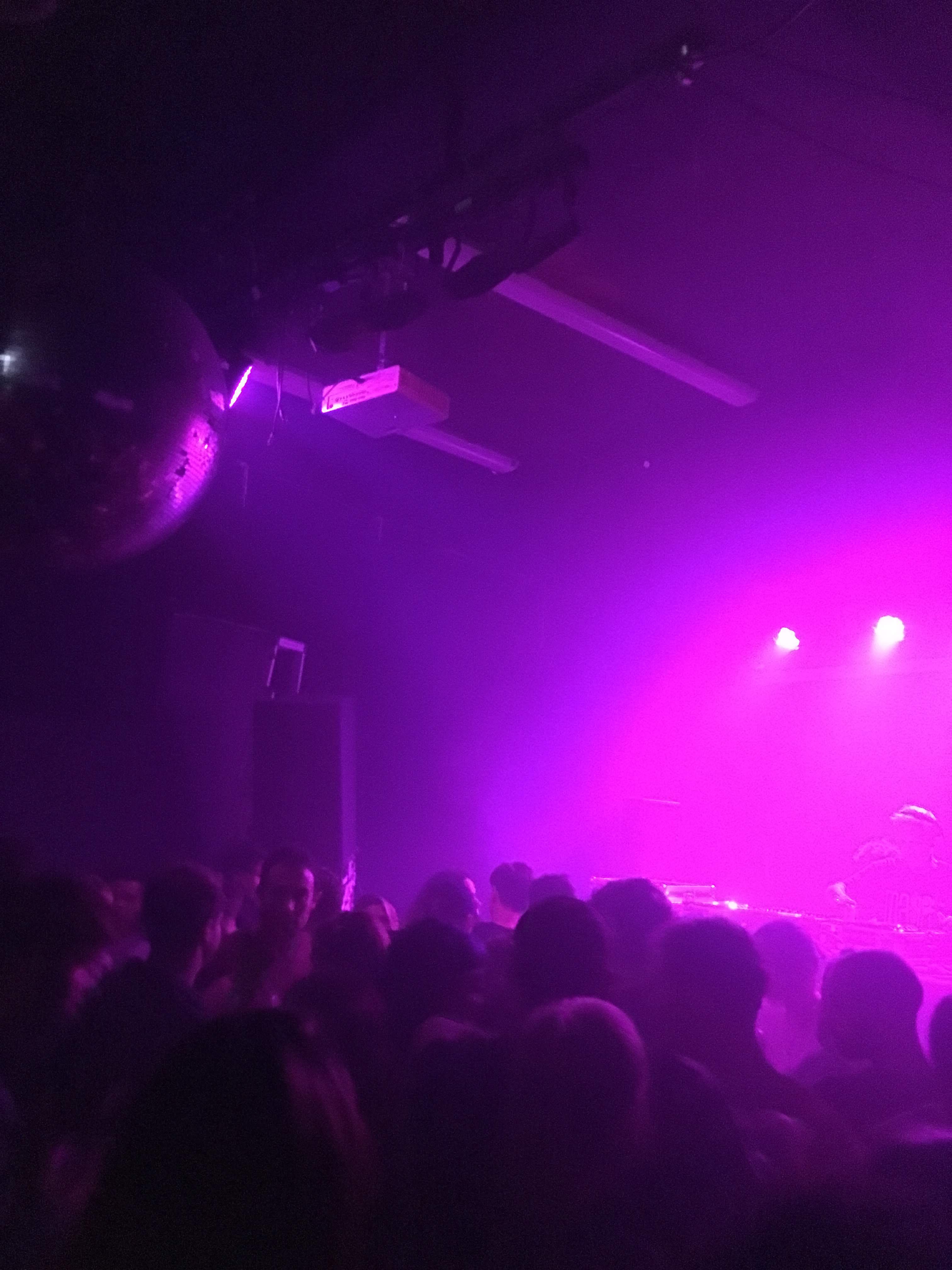
3. The journey home
You leave the club at the end of the night. As the fresh air hits you, you realise how tired you are, and you can’t wait to get home and into bed. But how are you going to get there?
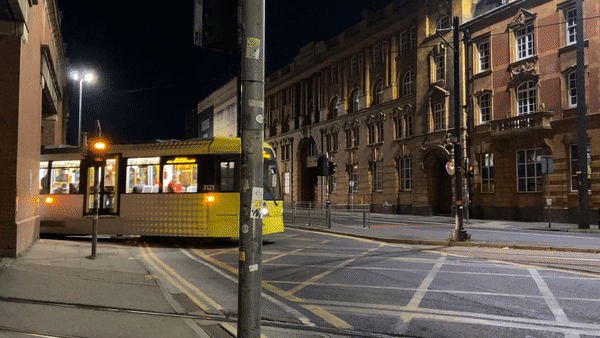
Getting home safely from a night out shouldn’t feel like a barrier in a major city.
But in Greater Manchester, making sure you’re tucked up in bed after a night on the town can often present a challenge.
From Monday to Saturday, trams in the city region run from 6am to midnight - useful for commuters, but less so for those looking for an affordable and efficient way to get home late.
Buses are erratic and inconsistent in the area. Some routes, such as the 142 ‘Magic Bus’ designed for students, running between Piccadilly Gardens and East Didsbury, run all night. But most operate far more restricted hours - especially those going to areas outside of Manchester city.
Taxi services such as Uber are an option, but are often expensive, and even these cannot guarantee safety. Manchester Students' Group has seen at least six reports of women feeling unsafe in Ubers due to drivers masturbating with them in the car or asking personal and inappropriate questions this year.
And even for those who feasibly can, walking home presents obvious safety concerns, including sexual assault and mugging.
Balancing safety concerns with keeping a night budget-friendly and realistic can be challenging for party-goers in Manchester. But transport here is changing…
In March 2021, nine of the region’s ten councils backed plans to bring its bus networks back under local government control. This would give local councils greater control over fares, routes, and operating hours.
It also leaves buses open to joining Mayor Andy Burnham’s ‘Bee Network’, which aims to transform public transport in the city region into one cohesive network, making it more affordable and efficient for travellers in the area.
As buses in Manchester come back under local council control before 2025, many will be looking to Council leader Bev Craig, as well as Mayor Andy Burnham, to expand on the city’s nighttime offerings.
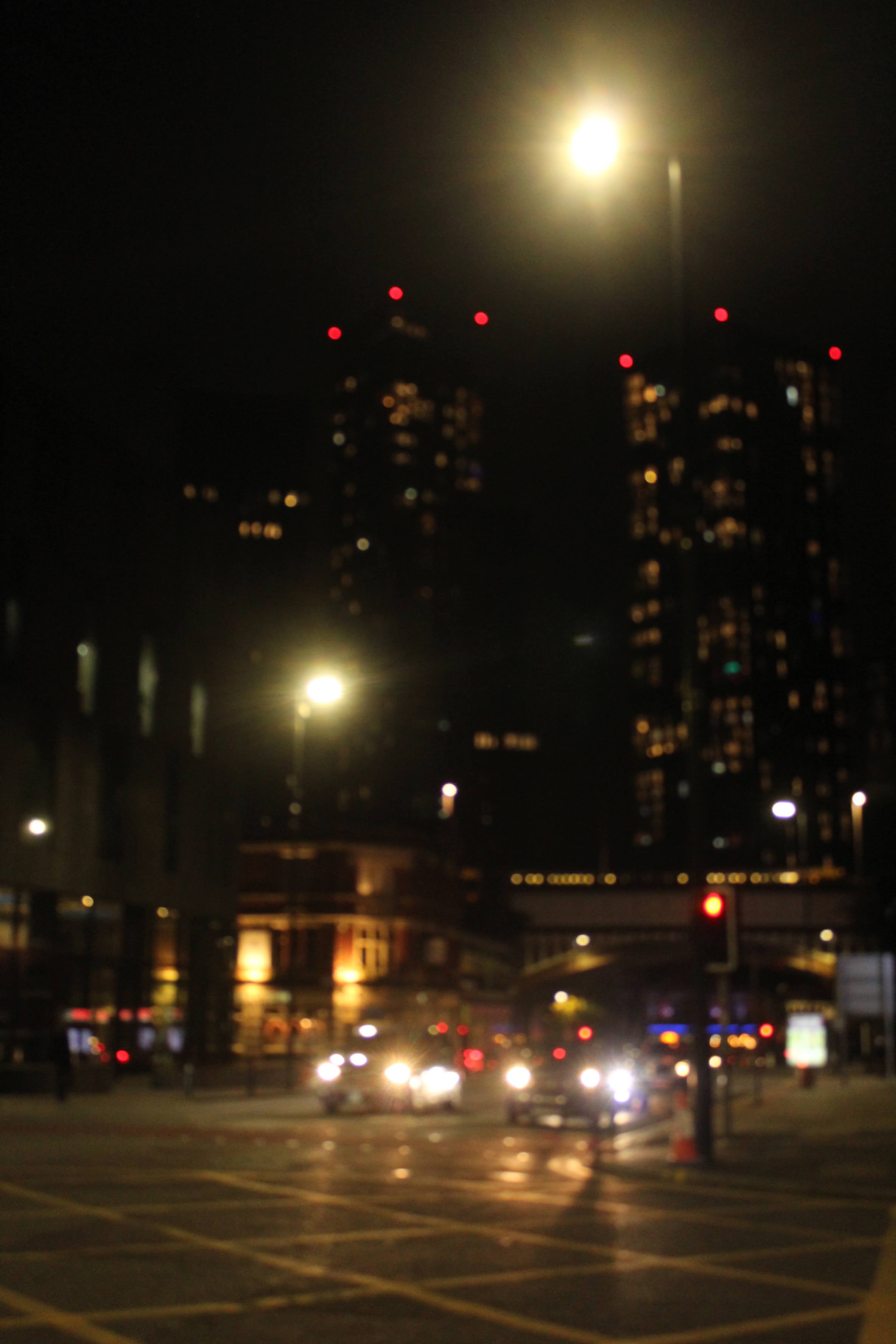
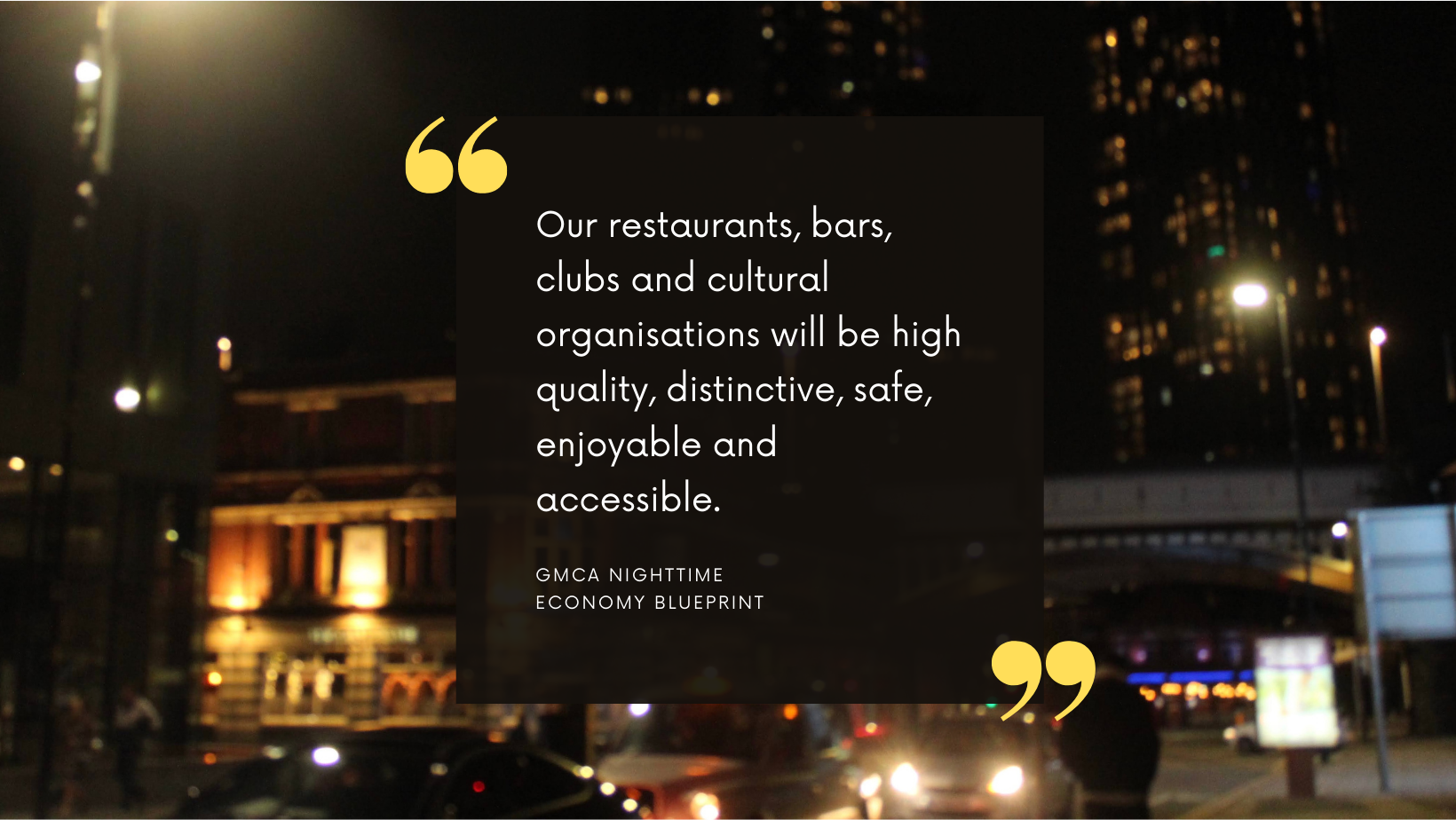
Manchester is famous for its nightlife, both past and present. It's the city that boasted the Hacienda, that produced the Madchester scene of the 1980s, and that even to this day hosts some of the UK’s best raves at Warehouse Project.
Let’s return to GMCA’s vision for our nightlife to be “high quality, distinctive, safe, enjoyable and accessible”.
Manchester isn’t immune from the modern challenges that face the nighttime economy. While many venues and individuals do a great job of keeping people safe and happy, as our virtual night out has highlighted, there is more to do.
All the issues highlighted here are connected. Tackling sexual harrassment also involves getting a grip on spiking incidents in bars and nightclubs, as well as ensuring that the residents of Greater Manchester have safe pathways home even in the early hours of the morning.
Equally, taking advantage of the city’s incredible facilities working towards harm reduction in drug use is also key to keeping everybody safe after hours.
And of course, tackling these issues will help to create the safe, enjoyable and distinctive nightlife that Manchester’s leaders are aiming for.
It’s about more than just the chance to party. Around 33% of the region’s workforce are in the nighttime economy, according to Greater Manchester Combined Authority’s nighttime economy blueprint. Safe nightlife here is important to a significant proportion of the workforce, as well as revellers themselves.
These issues are complex, and solutions are neither obvious nor easy. But at a time when reports of spikings dominate news bulletins and public trust in police to respond effectively to incidents of violence against women and girls is declining rapidly, it is obvious that more must be done.
